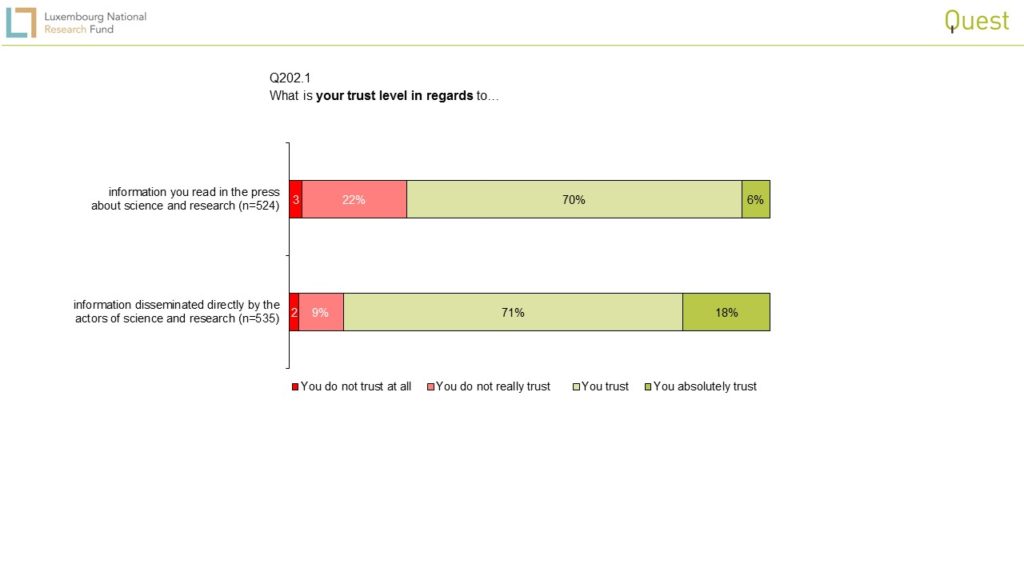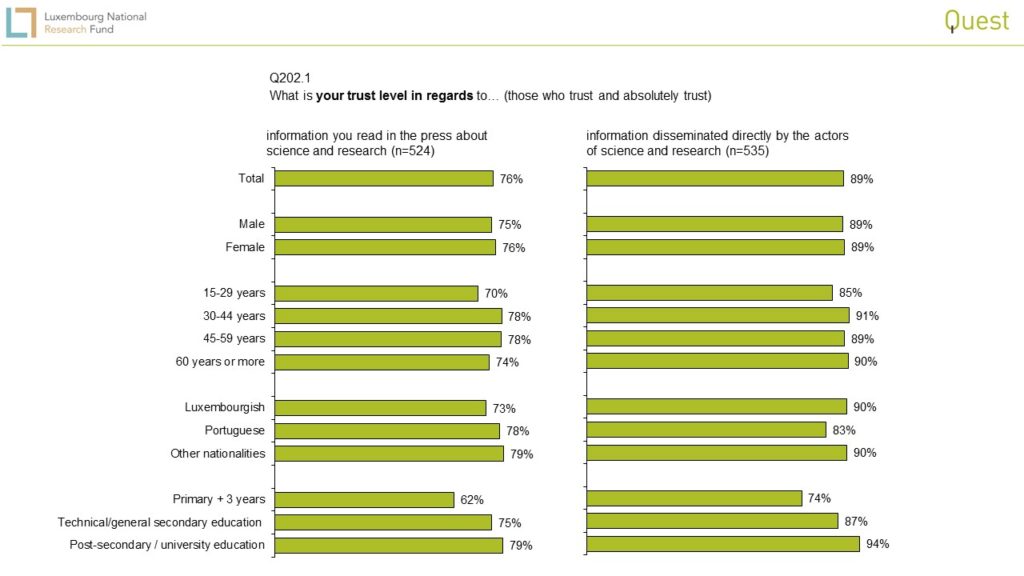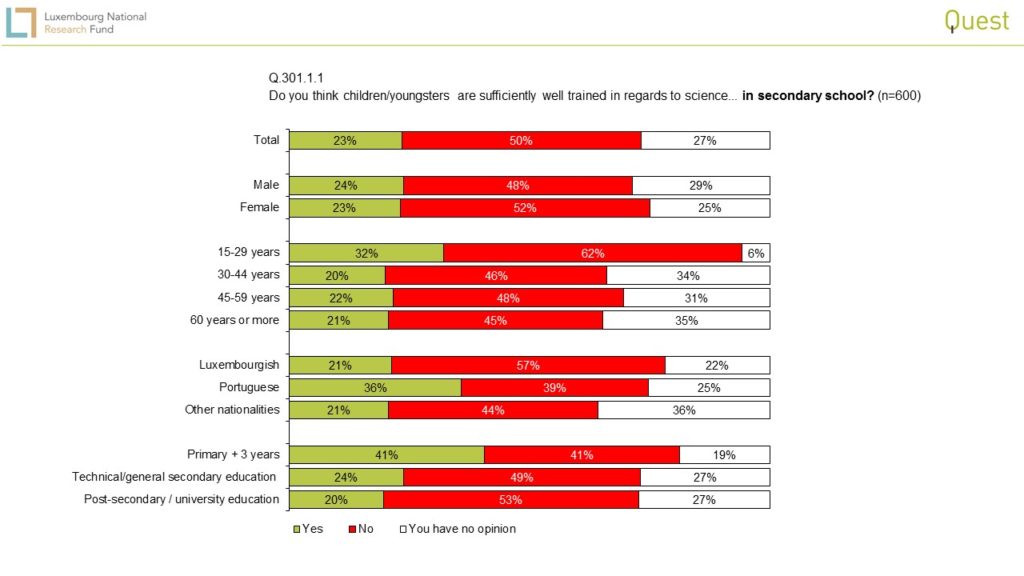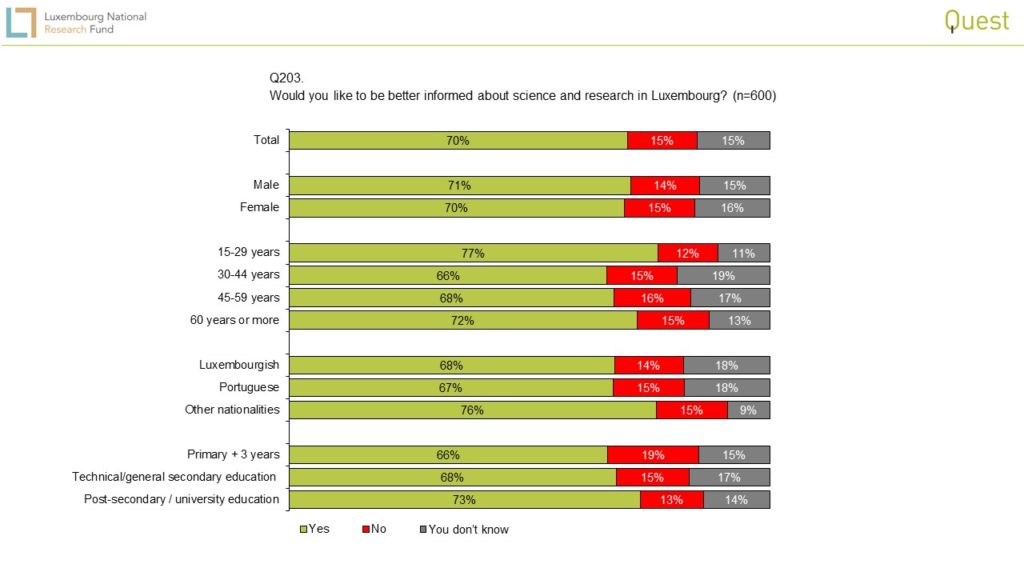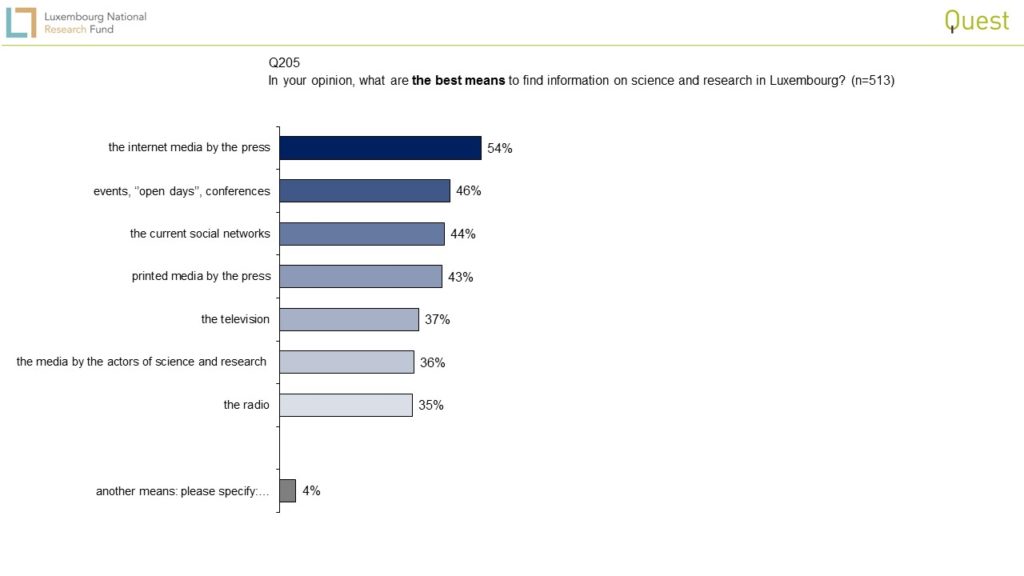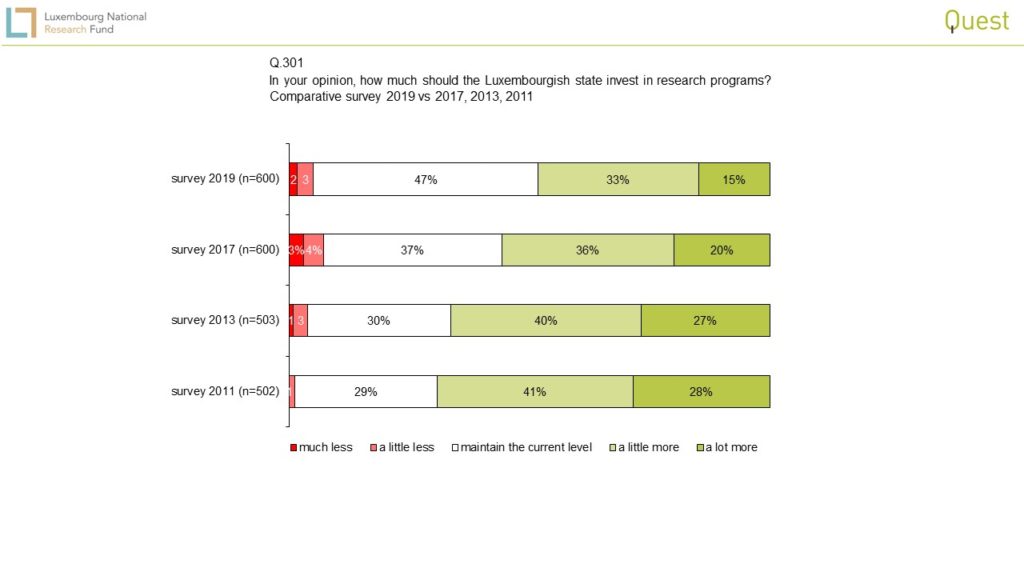Every two years, the FNR commissions a survey study to understand the level of notoriety and the perception of the Luxembourg research community among the general public. Discover the findings!
Which profession has the highest overall public trust – researchers, judges, teachers or doctors?
= Researchers! 88% of respondents trust researchers. Doctors are in 2nd place at 86%. In comparison, only 27% trust politicians.
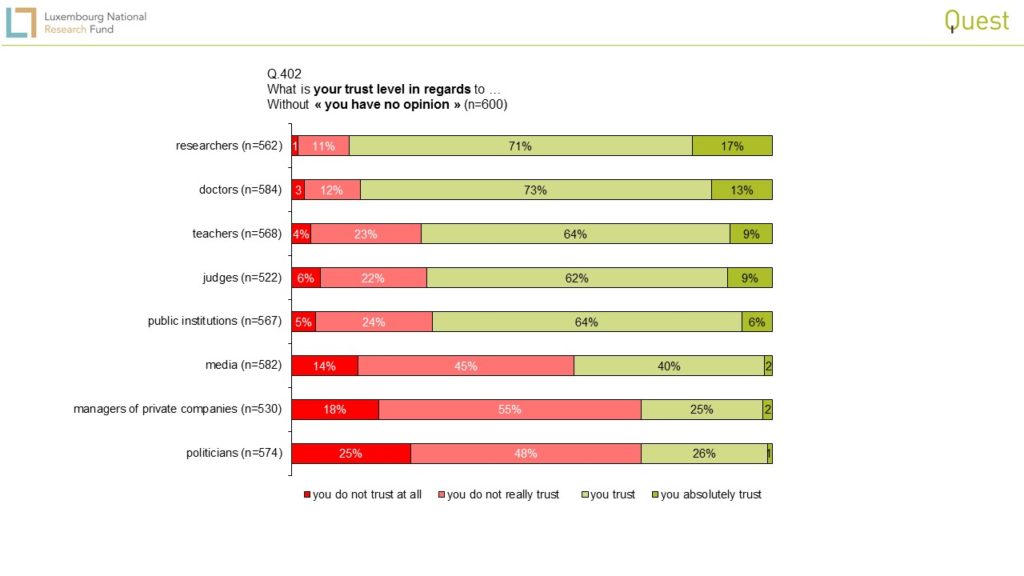
Do people trust information they read about science and research more if they read it in the press, or on the channels of the research actors?
= 89% of people trust the information they read about science & research when it is disseminated by research actors. 76% trust the information they read about science and research in the press – generally, the higher the level of education, the higher the level of trust in information disseminated about science & research.
Do people feel students are sufficiently educated about sciences in secondary school?
Only 34% of people feel well or moderately informed about science and research in Luxembourg. With this in mind, do people want to be more informed?
Do people feel the level of investment in research by the Luxembourg state should be lower, the same, or higher?
= It’s close! 48% feel investment should be higher, while 47% feel it should be maintained at current level.
(For information: The total budget allocated by the Luxembourg state to the public research institutions in Luxembourg for 2018-21 is 1.44 BEUR. Of the 1.44 BEUR, 340 MEUR is allocated to the FNR, in line with the multiannual contract 2018-21.)
More findings
Interest and level of information
- Today, 61% of the surveyed population says it is interested in science and research in Luxembourg (40% moderately interested and 21% very interested) – compared to only 40% in 2011.
- The desire to be better informed has risen at the highest level since 2011 (70% of the population), but perhaps more important: The percentage of those who don’t want to be better informed has significantly gone down (from 36% in 2017 to 15% in 2019). The demand to be better informed is particularly strong among the younger target audience (15- to 29-year-olds).
Level of trust
- The level of trust in science is high: 67% of the population trusts in science and research. In comparison to other job categories (teachers, judges, media, politicians…) the researchers have the highest level of trust (88%).
- The level of trust in regards to information that is disseminated directly by the actors of science and research is at a very high level of 89%, 13% higher than for science and research information disseminated by the traditional press. Nonetheless, the majority of the population seeks information on science and research in the internet media by the press, followed by events, conferences, the current social networks or the printed media.
Support for science
- A clear majority (81%) believe that even a small country like Luxembourg should carry out scientific research. The population has a very positive view (69%) of research that raises knowledge, even if it does not have an immediate impact (very similar level to previous years). A majority of the population (67%) believe that we should all take an interest in science, as it has a significant effect on our lives (figure mainly the same as in previous years).
Notoriety
- The University of Luxembourg is the most known research actor in Luxembourg, followed by the FNR.
- All the Luxembourg Institutes (LIST, LIH, LISER) gained in reputation compared to 2017 (where all those actors lost in reputation, very likely due to their change of name)
- The activities Mr Science, science.lu and Science Festival all have good reputation scores among the more difficult to reach target groups of those who have lower educational degrees.
Other
Only 16% of the surveyed population thinks that children/youngsters are sufficiently well trained in regards to science in primary schools (23% in regards to science in secondary schools)
The population thinks that science helps:
o to resolve global issues (4.82 out of 6)
o guarantee the economic competiveness of Luxembourg (4.74 out of 6)
o improve everyday life (4.56 out of 6)
o resolve environmental issues in Luxembourg (4.52 out of 6)
o resolve societal issues in Luxembourg (4.05 out of 6)
The survey study was carried out by Quest on 600 people, both via phone and online.
